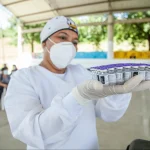12 Ways to Help Others Understand the Value of Your Passion
Industry experts share proven strategies for communicating the true impact of passionate pursuits across diverse fields. This practical guide showcases how professionals effectively demonstrate value in areas ranging from coffee cultivation to prison reform consulting. The article presents actionable approaches that transform personal enthusiasm into widely understood benefits for communities and customers.
- Coaching Career Expands Impact Beyond Tech
- Skateboarding Builds Community, Not Just Sport
- Nervous System Work Embodies True Responsibility
- Yoga Teaching Fulfills Life Purpose with Results
- Entrepreneurship Models Strength for Next Generation
- Building a Coffee Brand Beyond the Beans
- Prison Consulting Addresses Critical Justice Needs
- Coffee Shop Cultivates Purpose Beyond Profit
- Desk Design Transforms Pain into Productive Work
- Dermatology Restores Confidence Through Skin Health
- DeFi Creates Empowerment Through Financial Control
- Science-Backed Mission Transforms Hair Restoration Perception
Coaching Career Expands Impact Beyond Tech
I stopped trying to explain why my passion for coaching mattered and instead showed what changed when I followed it. After 20 years climbing the tech ladder, I left to become a life coach — plenty of people thought I was throwing away a solid career. My own father questioned whether I was being financially irresponsible.
What shifted the conversation wasn’t defending my choice — it was when my son, now in college, told his friends I was the person who helped him figure out what he actually wanted instead of what he should want. Then one of my former engineering colleagues reached out saying he’d been promoted to senior leadership after our coaching work together, specifically because he’d learned to lead from his values instead of just checking boxes.
The perspective that helped doubters understand: I wasn’t abandoning responsibility, I was expanding it. That Greek adage I live by — “Societies grow great when old men plant trees whose shade they shall never sit in” — applies here. My tech career helped one company succeed. My coaching practice has ripple effects I’ll never fully see: better parents, stronger leaders, healthier teams. That’s not irresponsible. That’s playing a longer game.
My dad came around when he saw my kids thriving and my clients sending notes about life changes months after we finished working together. Numbers matter, but impact matters more.
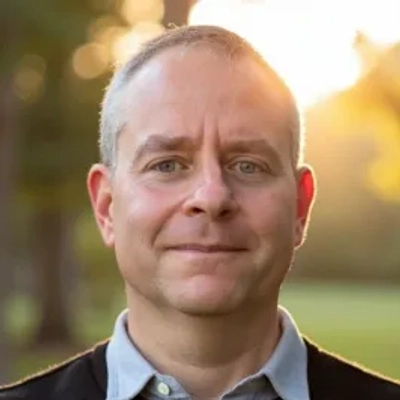
Skateboarding Builds Community, Not Just Sport
A few years ago, I had a conversation with someone very close to me — someone who couldn’t understand why, as a grown man with a business and a family, I was still “chasing around on a skateboard.” They thought skateboarding was something to grow out of, not grow with.
At first, I laughed it off. But their words stuck. So instead of arguing, I invited them to come with me to a local skatepark one weekend. It was a regular Saturday — kids practicing ollies and kickflips, older skaters helping them line up their trucks, a few parents sitting on the curb with coffee cups. Nothing fancy, just Saturday morning in the local skatepark.
We stood there for about ten minutes before this 8-year-old kid took a rough fall. His knees were scraped, and his eyes were full of tears. Before I could even move, three other skaters — teens, maybe sixteen or seventeen — skated over, lifted him up, brushed off the dust, and cheered him on. Within minutes, the kid was smiling again, trying the trick one more time.
That moment was everything I wanted to explain but couldn’t put into words.
Skateboarding isn’t about rebellion or recklessness — it’s about resilience, creativity, and community. It teaches you how to fall, how to get back up, and how to support the person next to you doing the same. It connects people who might never have spoken otherwise — kids, parents, artists, engineers, dreamers, tax advisers, even politicians.
Later that day, the person who had questioned my “irresponsible passion” turned to me and said, “I get it now. It’s not just a sport to you — it’s a passion, it is life.”
That’s exactly it. Skateboarding gave me a way to express myself, to push through fear, and to build something really meaningful with others… Others who share the same heartbeat for movement and freedom. It’s the same energy that built my company — not just teaching tricks, but teaching confidence, courage, and connection.
So when someone calls it irresponsible, I smile. I really do 🙂 Because they haven’t yet stood in a park where a kid falls and fifty strangers cheer them back up. They haven’t seen what happens when wood, wheels, and determination turn into something much bigger — a family that rolls together.
That’s what skateboarding means to me. And that’s how I explained it.

Nervous System Work Embodies True Responsibility
When someone saw my passion for nervous system work as “irresponsible” — leaving a Fortune 50 career to build my company — I didn’t try to convince them with business plans or income projections. Instead, I explained it through impact and integrity. I shared that my success in corporate was built on survival-mode coping, and while it looked impressive, it wasn’t sustainable or healthy.
The perspective that helped them understand was reframing passion as responsibility. I said, “This work isn’t me abandoning stability; it’s me creating a life and business from regulation, not burnout. That makes me a better leader, partner, and contributor.” Once they saw how my passion created tangible benefits, health, resilience, and the ability to help others, they began to view it as purposeful, not risky.
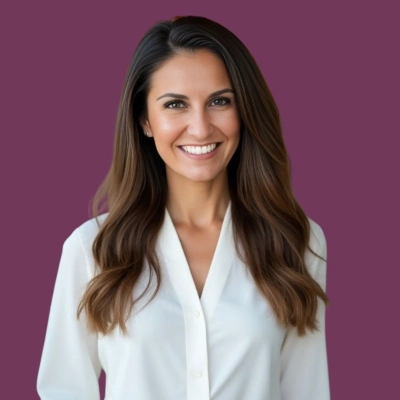
Yoga Teaching Fulfills Life Purpose with Results
I would like to keep the context confidential, but I did experience this one. When I first shared my decision to leave a conventional office job to fully focus on my business, some people saw it as irresponsible since it was not on the normal career path. They wondered how teaching yoga online would be secure or stable compared with a regular salary.
I made it clear to them that yoga and holistic wellness are not only an activity but they are the foundation of my life’s purpose and my source of happiness. I said that I find energy, focus, and discipline in teaching and building my company that influence all other activities I do, such as personal choices and professional responsibility.
Today, I have over 500 students with video testimonials, and the institute has over 300 five-star reviews on Facebook, which demonstrates that my work is actually making a difference.
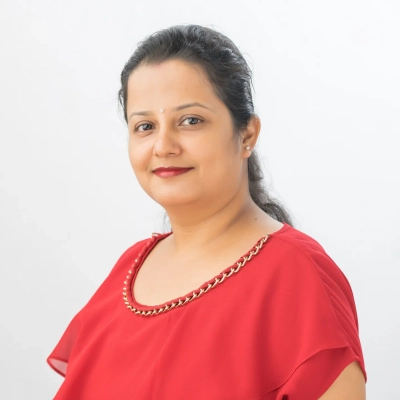
Entrepreneurship Models Strength for Next Generation
When I was building my spa while fighting a custody battle as a single mom, people — including family — thought I was being selfish. They said I should focus on “stability” and get a regular job instead of pouring energy into a business that wasn’t guaranteed to work.
What changed their minds was when I started bringing my daughters with me to the spa on weekends. They saw me teaching them about entrepreneurship, self-reliance, and that women don’t have to choose between motherhood and purpose. My oldest started helping with inventory at 12. That’s when my family realized I wasn’t neglecting my kids — I was showing them a different model of what’s possible.
The real shift happened when one of my mentees from Woman 360 left an abusive relationship and built her own income stream using what I taught her. My mom saw that my “risky” path was actually creating safety nets for other women who had none. Suddenly it wasn’t irresponsible — it was necessary.
I’ve meditated since I was 10, so I’ve always trusted my inner knowing over external validation. When you’re connected to source and your work helps others heal, the “irresponsibility” argument falls apart. My stress-reduction massage has boosted clients’ immune systems measurably — that’s not selfish, that’s service.
Building a Coffee Brand Beyond the Beans
Some people thought I was being unrealistic when I started my company — to leave a solid path in order to start a Vietnamese coffee brand didn’t feel like I was building a career, but chasing the dream of a hobby. I remember a conversation with one relative saying, “You are too smart to risk everything you have on coffee.” It really hurt, since they did not see what I saw. I explained to them that my business did not mean coffee to me as much as it meant the story behind coffee. It was a story of the past — of appreciation, of life and hope, of the world’s many cultures. I was not trying to escape responsibility; I was trying to go in another direction toward something that meant so much to me. As they saw the depth and thought and heart and perseverance that it took, they finally realized that there was passion involved and it might be the most responsible thing possible.

Prison Consulting Addresses Critical Justice Needs
When I’ve needed to explain my passion in prison consulting, rehabilitation, and justice work to those who have said it was irresponsible, I’ve done it with a practical explanation of what my job actually is. For some, it may feel like a risky use of time and energy, as it has less predictability than more traditional roles. I shared with them that I was not after some abstraction but was spending my life applying law, policy, and consulting skills to meet a profound need in society. I reminded them that people in the justice system often hit walls they can’t navigate alone, and there is real value to being able to enter the arena with knowledge and assurance. That helped reframe this from being “irresponsible” to something that’s intentional.
One angle that typically resonates is demonstrating how passion drives discipline and resilience. I told them that it’s my passion which allows me to work the extra hours needed to review case files, prepare clients for court, and stay updated with legal changes. But without that passion, the work would be a job and not a responsibility I want to bear. I also underscored that passion isn’t avoidance of responsibility — it is aligning responsibility with something meaningful. By demonstrating that I still valued structure, accountability, and results even as I leaned into what mattered most to me, they were able to see that passion wasn’t a distraction — it was the vehicle for dealing with hard moments throughout each day.
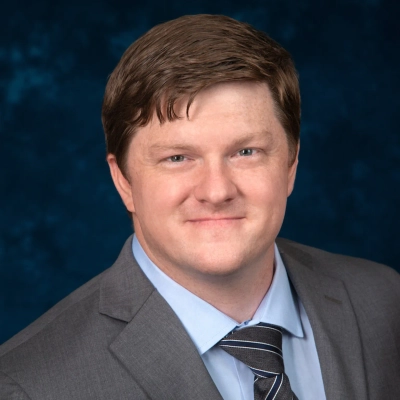
Coffee Shop Cultivates Purpose Beyond Profit
I am a coffee co-owner, and I shared the significance of my love and passion for coffee with someone who considered it irresponsible, properly informing them that this was not simply about brewing coffee, but building community. I shared with them that my business was not an irresponsible dream, it was an intentionally service-oriented, creative, connection-based vision. Each cup represented an ode to hard work, craftsmanship and the means to potentially brighten someone’s day.
Once I framed the experience in the context of purpose and discipline, they started to understand the value. I explained how my passion helped encourage risk, with purpose, rather than reckless abandon. I stated that witnessing the friendships that had formed in our cafe, and how many lives were positively impacted by our work, all helped illuminate how a responsibly nurtured passion creates far more than revenue; it creates meaning, belonging, and growth.
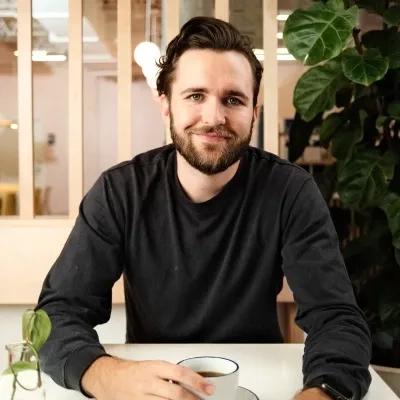
Desk Design Transforms Pain into Productive Work
I demonstrated the significance of my passion by illustrating the groundwork that accompanied it. A family member once thought I was reckless for leaving a stable corporate job. I explained that I surveyed over 500 prospective customers, tested three prototypes in my house, spoke to physiotherapists regarding ergonomic issues, and created conservative financial projections before I launched Desktronic. All of the upfront work demonstrated that this was not a gamble but an informed decision.
I helped them see value in my passion by tying it to real results. One of our first customers is a graphic designer who suffered from chronic back pain. She wrote to explain that our desk allowed her to work without pain and without medication. I also explained to family members that my passion comes with responsibility for my employees, whose livelihood is based on the decisions I make. Understanding that it changes lives and creates stability reframed my passion as responsibility and not recklessness.

Dermatology Restores Confidence Through Skin Health
I once had a friend tell me that he found my passion for cosmetic dermatology frivolous. I don’t agree, because I’ve seen the impact skin health has on self-worth. Treatment for acne or restoration of pigment is not vanity; it is healing. I have watched people walk in not looking others in the eye, but walk out standing much taller. This type of change is more than skin deep — it restores confidence, and that is more important to people than they realize.
I don’t do speculation in my clinic. I do documentation. We use digital imaging to show improvement in texture, tone, scarring, etc. Over 80 percent of our patients have noted improvement in their self-confidence within half a year. These figures tell a story of healing that goes beyond the skin. But more than that, it is the aspect of my art which I defend and at which I take umbrage every time it is referred to as superficial, since it is not one iota superficial, but is medical treatment of those who become whole again.

DeFi Creates Empowerment Through Financial Control
When I first spoke of my passion for decentralized finance, some called it dangerous, some impractical. I explained that it was not about making bets on trends but rather building systems that empowered individual people through greater control and transparency of their financial futures. My background in software and product development helped me to see how technology and new forms of trusting relationships can provide efficiencies that could never be seen in established systems.
I shared how this effort brings together logic, security, and creativity, three of the same principles that good engineering represents. When the listeners came to understand that the efforts of my focus had been on the creation of sustainable tools to provide individual people the use of the data, not speculation, their point of view soon changed. What appeared to be reckless now appeared to be a normal evolution of a more technical and financial inter-relation.
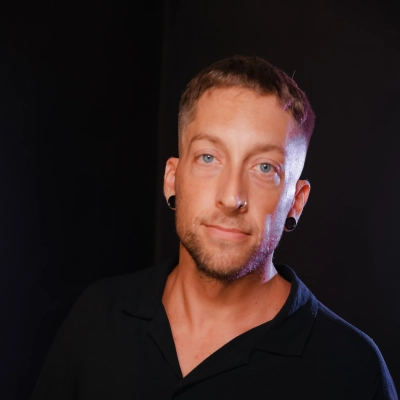
Science-Backed Mission Transforms Hair Restoration Perception
I explained to them that my passion for helping men get their hair back is more than just an interest, but a mission rooted in science. I’ve spent over 10,000 hours studying hair loss, cutting through what actually works, and talking with the world’s leading hair restoration doctors. My company was created with rigorous clinical backing, and every decision I make has an evidence-based foundation. I wanted them to understand that this is research-based, intentional work, not fantasy.
I described how our combination therapy approach, which was created by Dr. Daniel McGrath, treats the root cause of baldness. Every patient we help regain hair and confidence is a witness to the power of science. This made them realize the level of dedication behind my work and changed their perception from irresponsible to committed to actual change.
I reiterated that saving thousands of patients from severe hair loss through safe reversal is a real benefit of that passion. When they saw that my work is not abstract but has quantifiable, positive results, they recognized its worth in my life. My business is an integration of science, purpose, and bottom-line results, and that view made my commitment both responsible and worthwhile.





